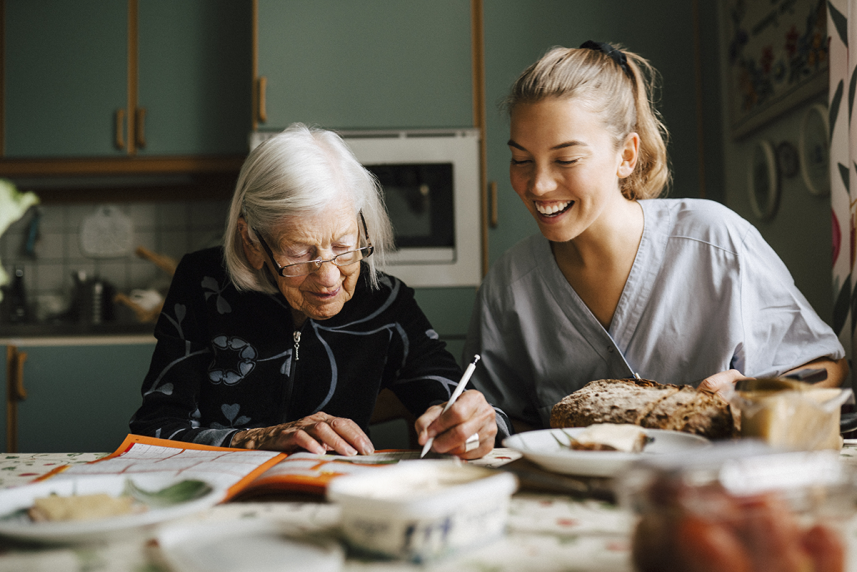Where to find extra help when you’re a caregiver
Sometimes you can’t do it all yourself — and that’s okay

Nearly 1 in 5 Americans are providing unpaid care to an adult who is in need. Around 23% of caregivers reported that this made their own health worse. “If a caregiver is overwhelmed, it’s important to know there are resources out there,” says Melissa Batchelor, Ph.D., RN-BC, director of the George Washington University Center for Aging, Health and Humanities. Here’s what to do, step by step:
First, simply decide if you need help
If you’re experiencing competing time demands, hired aides can provide an extra set of hands while you’re outside the home or resting, and they can offer expertise such as meeting your loved one’s nutritional, medical, and social needs.
“If a person begins struggling with activities such as eating or bathing, you might need someone trained to help do those things,” Batchelor says.
Next, begin your search for an aide
It can be stressful to find a caregiver who has the skill set you’re looking for. Organizations such as the Program of All-Inclusive Care for the Elderly (PACE) and the Village Movement — a nationwide care model of neighbors helping neighbors — are good places to start. Most communities also have an Area Agency on Aging, Batchelor says. You can also use the Eldercare Locator, a public service of the U.S. Administration on Aging.
Then introduce them to your loved one
It can be a little overwhelming to have someone new in your home. Even though agencies will try to find a good fit, you might have to go through a few caregivers before you find the right match. Involve your loved one in the process, Batchelor says.
“They can say ‘I liked her’ or ‘I didn’t like him.’ There can be some shared decision-making as much as that person is able to participate,” Batchelor says.
Especially for those with memory issues, staying home with a new caregiver during their first few meetings can help your loved one associate a familiar face with a new one.


